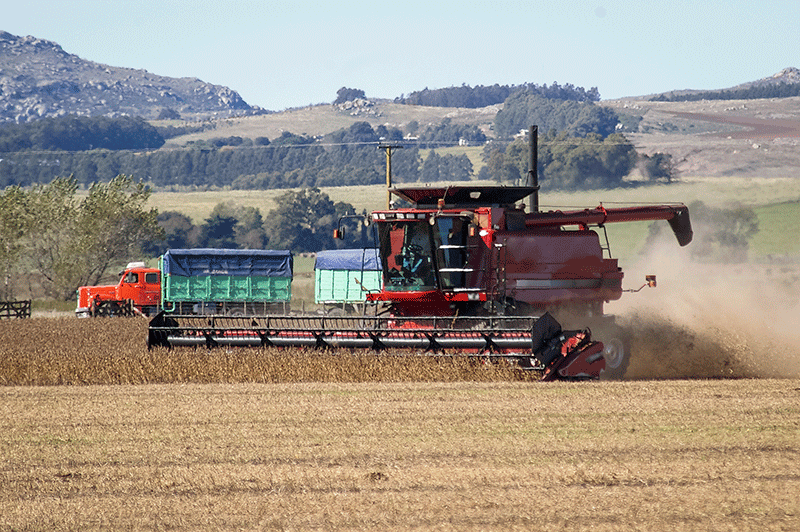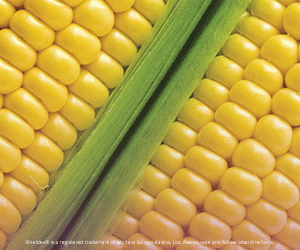Tariff trouble
CHANGES IN ARGENTINA SHIFT GLOBAL MARKETS
ONTARIO’S FARMERS KNOW to keep a watchful eye on our neighbours south of the border for market-impacting events including politics, currency, and weather. But we can’t forget that dealing in an international marketplace means events in every competing country can impact grain sales and prices, too.
PHOTO: SOYBEAN HARVEST IN ARGENTINA.

Looking very south, Argentina is a leading corn, soybean, and wheat producing country that warrants a watchful eye. New government leadership, inflation, currency rates, and reduced tariffs are creating volatility for Argentina’s growers. Past governments have restricted agriculture with taxes on exports. That will continue with the recent election of Argentina’s new president, Mauricio Macri — as the administration has eliminated export taxes on corn and wheat and committed to slowly phase out the 35 per cent export taxes on soybeans over the next few years.
The result of these significant tariff eliminations and reductions combined with dramatically rising inflation rates and a devalued currency is an increase in the local value of grain. Farmers sold huge amounts of their corn reserves after the new president announced the tariff changes.
Brennan Turner, president of FarmLead.com, an online grain marketplace, says Argentine farmers are optimistic about the recent government and political trade changes. “Argentine farmers are seeing prices increase in domestic products because international buyers can buy more grain with their stronger currencies,” says Turner.
The result could mean more Argentine corn, soybeans, and wheat entering the global market, further strengthening Argentina’s position as the world’s third largest corn and soybean exporter and eighth largest wheat exporter.
Cam Dahl, president of Cereals Canada, cautions that political involvement of any kind in markets increases volatility and risk. “Unpredictability, volatility, and risk tend to lead to additional costs on the international marketplace,” says Dahl, explaining the past policies in Argentina have impacted international grain markets. Dahl says it’s difficult to predict where additional Argentine exports will be directed and how they will compete with Canadian products, “but we’re all priced on an international market so watching our competitors is important.”
Currencies and input prices will also drive production changes and exports in Argentina and South America says Turner, noting low oil prices are resulting in cheap ocean freight. Argentina has also seen infrastructure improvements in recent years, further opening market opportunities for farmers to transport their products faster and easier. The U.S. Department of Agriculture expects Argentina to export 17 million metric tonnes from the 2015/2016 season, 1.5 million less than in 2014/2015.
“Today’s currencies are seeing farmers enjoying some strong prices,” says Turner. “Worldwide events impact all of us — we’re all producing and selling in a global economy.” •







